

CONTINUED ANTI-NUCLEAR EFFORTS
As the Cold War neared its end, the products of the Russell-Einstein Manifesto - the Pugwash Conferences, several disarmament treaties, a peaceful influence on the USSR - guided future organizations and movements in the fight for anti-nuclear policy.
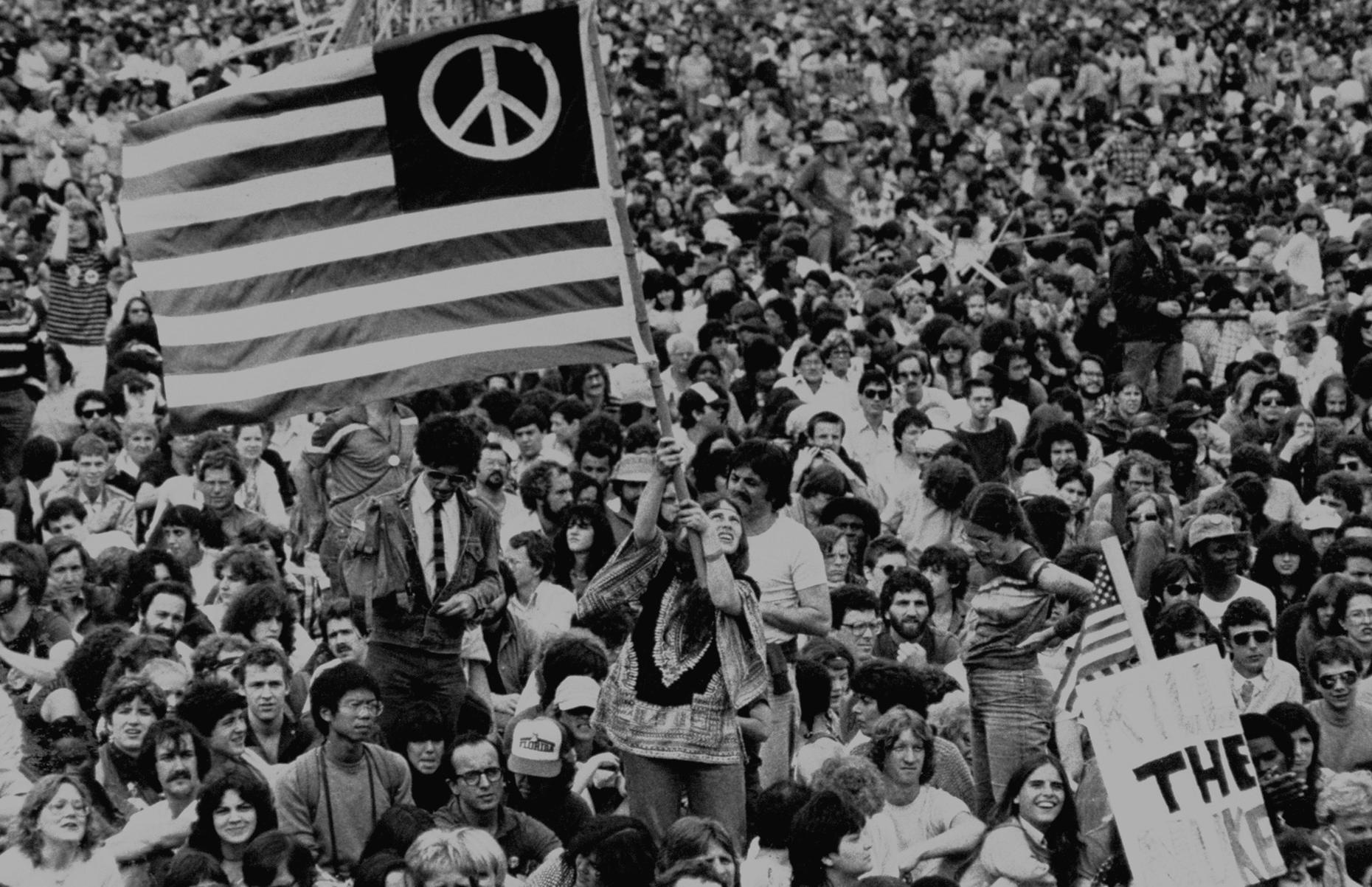
THE GREAT ANTI-NUCLEAR MARCH AT CENTRAL PARK, NEW YORK, JUNE, 1982. COURTESY OF WNYC, US RADIO STATION
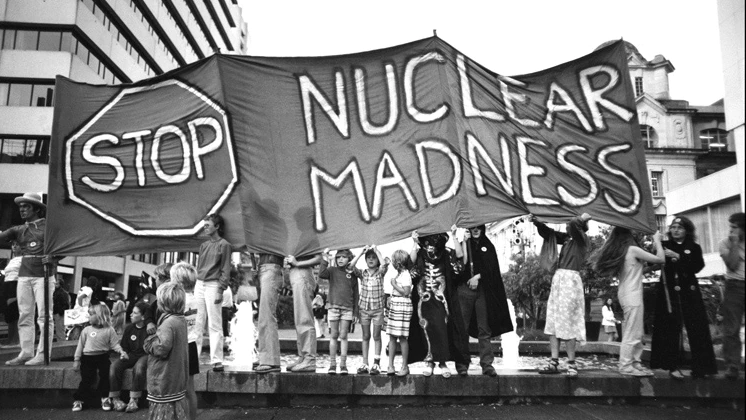
CHILDREN IN NEW ZEALAND PROTEST AGAINST NUCLEAR WEAPONS, 1982. COURTESY OF ABC NEWS
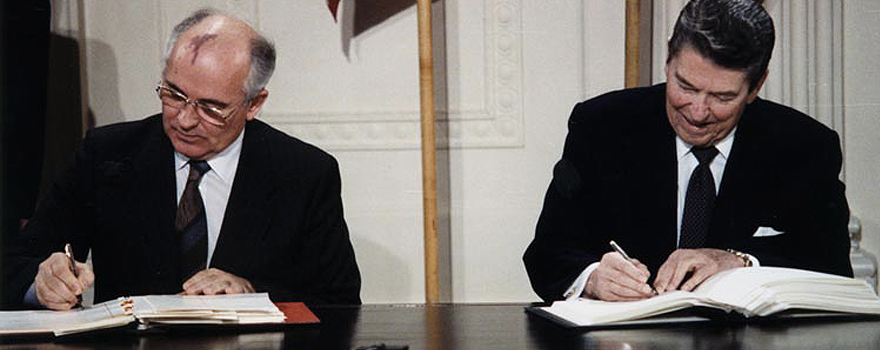
REAGAN AND GORBACHEV SIGN THE INTERMEDIATE RANGE NUCLEAR FORCES TREATY, 1987. COURTESY OF THE UNIVERSITY OF NAVARRA
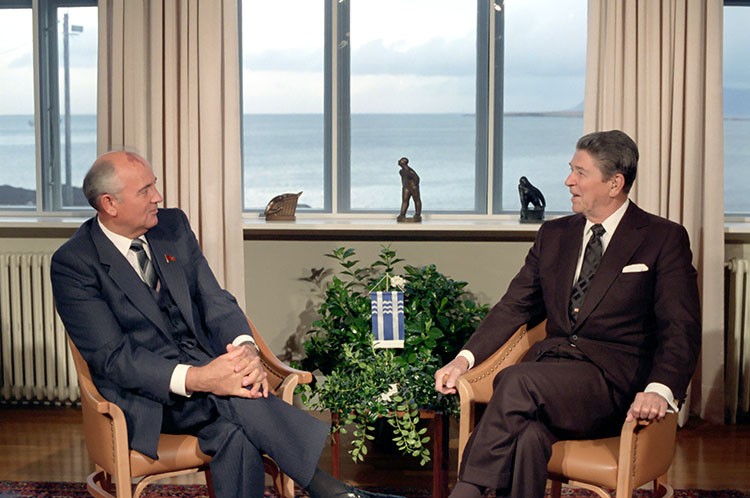
REAGAN AND GORBACHEV AT THE REYKJAVIK SUMMIT TO DISCUSS NUCLEAR DISARMAMENT, OCTOBER 1986. COURTESY OF THE US ARMY
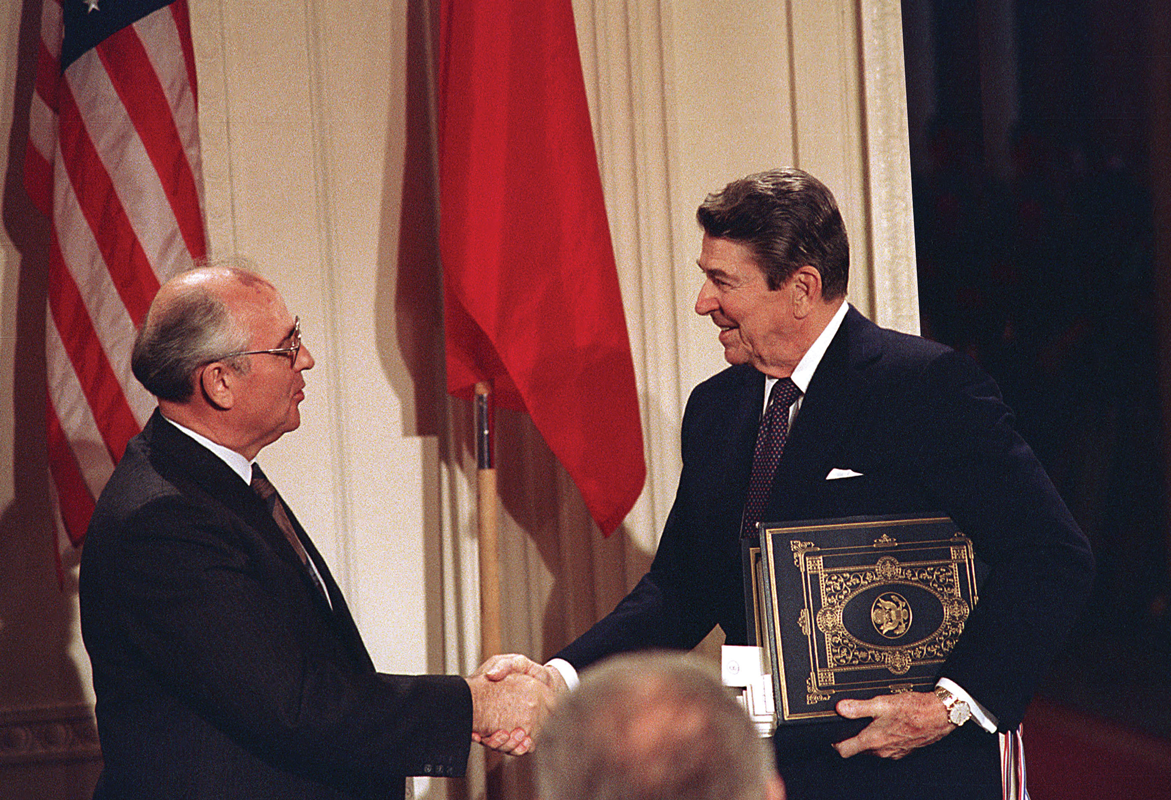
REAGAN AND GORBACHEV AFTER THE SIGNING OF THE INTERMEDIATE RANGE NUCLEAR FORCES TREATY, 1987. COURTESY OF THE HERITAGE FOUNDATION

THE COLD WAR ENDS
Through diplomatic efforts between US President Ronald Reagan and Mikhail Gorbachev, tensions began to ease. Soviet influence began to wane in the late 1980s, and by 1991, severe economic decline in Russia prompted the total collapse of the Soviet Union; the Cold War had ended.
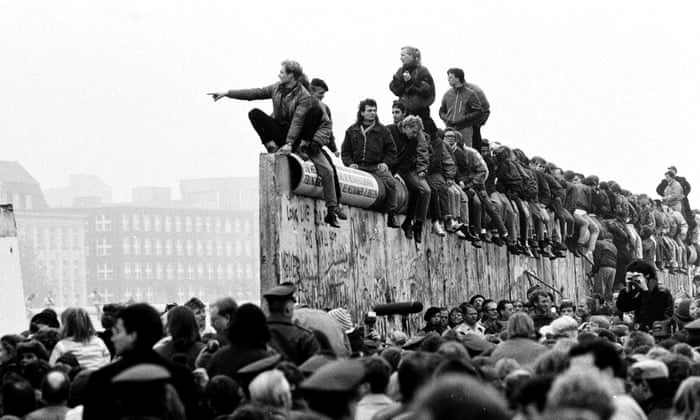
BERLINERS CELEBRATE THE FALL OF THE BERLIN WALL, A LONG-STANDING SYMBOL OF THE COLD WAR, 1991. COURTESY OF THE GUARDIAN
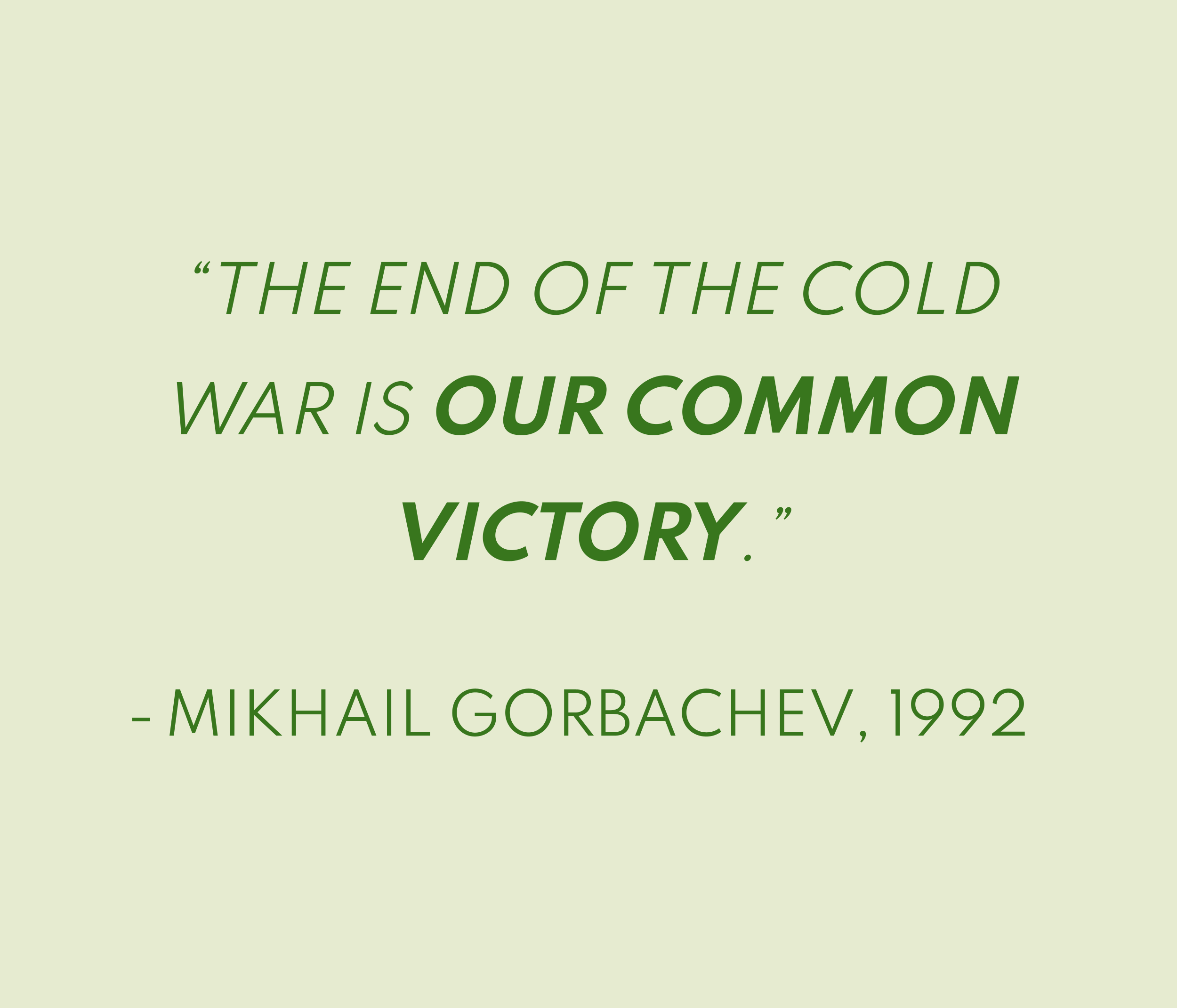

REMAINING STRUGGLES
Despite the incredible impact of the Russell-Einstein Manifesto during the 20th century, the possibility of nuclear war remains dangerously high in today.
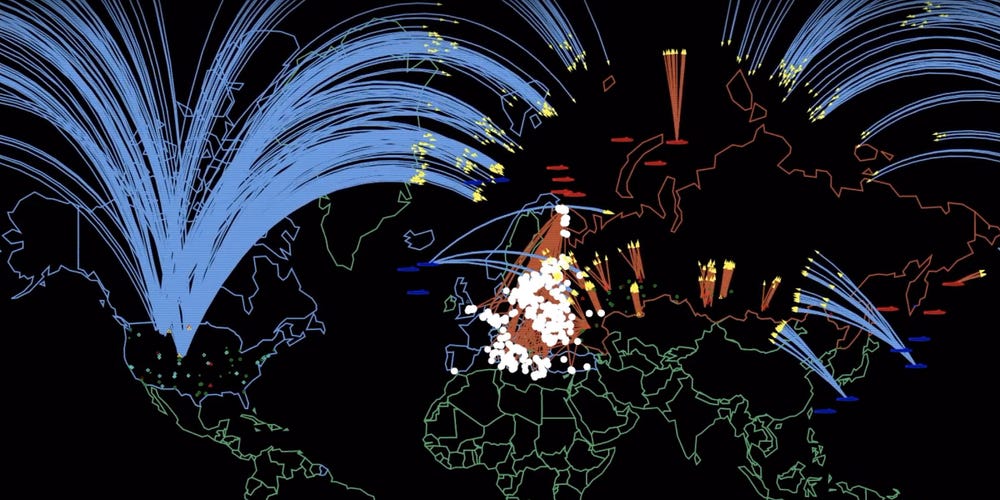
VISUAL SIMULATION OF THE RESULT OF MODERN-DAY NUCLEAR WAR, 2020. COURTESY OF BUSINESS INSIDER

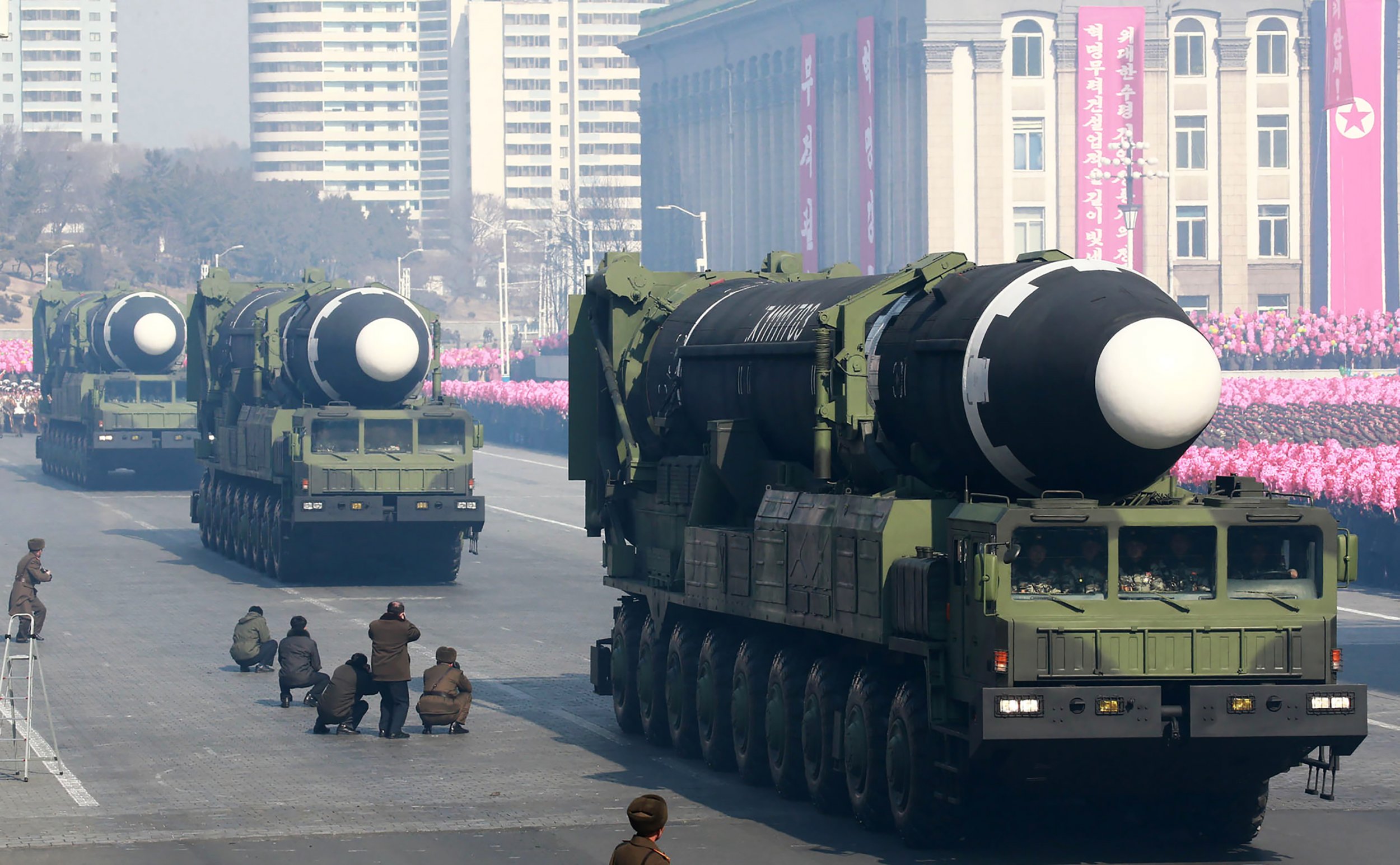
NORTH KOREA'S DISPLAY OF NUCLEAR WEAPONS, 2018. COURTESY OF NEWSWEEK

CNN HEADLINE HIGHLIGHTING THE POSSIBILITY OF A NUCLEAR WAR. COURTESY OF CNN

CONCLUSION
As modern-day conflicts raise fear of the eruption of another global war, the warnings in the manifesto come to light once again. However, the calls for diplomacy and cooperation also remain through the message of the Russell-Einstein Manifesto, as hope for a world in peace lives on.


THE RUSSELL-EINSTEIN MANIFESTO
NATIONAL HISTORY DAY 2022: DEBATE AND DIPLOMACY
EVAN McCRACKIN REN GIUSTI, AND JUSTIN YANG